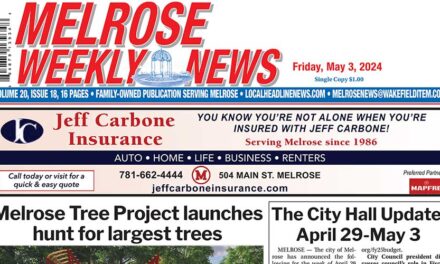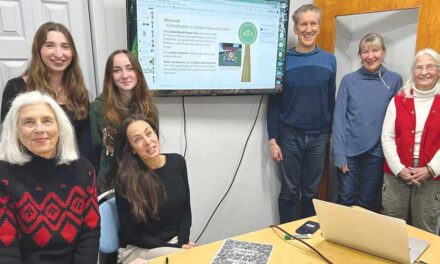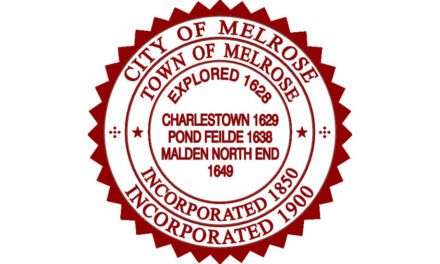Published in the November 18, 2016 edition
MELROSE — According to Mayor Rob Dolan’s recently released fall newsletter, data collection on Melrose’s trash and recycling habits has revealed that under the single stream system, recycling has gone up, but work can still be done to lower trash output.
A few years after the implementation of a single stream recycling program – in which recyclable materials do not need to be separated by type – the city is conducting research to see how the program has changed consumption totals. Public Works and the volunteer-run Melrose Recycling Committee collaborated on the project. Data collectors went neighborhood to neighborhood and took note of how many houses on each street had put out recycling bins. Last May, 25% of residents covered by the city’s waste collection services were surveyed. The data gathered was then analyzed to determine how much recycling and trash output had increased and/or decreased, and which neighborhoods had the highest and lowest recycling participation rates.
According to the data collected, overall recycling in Melrose increased by about 6% between 2013 (the year before single stream’s implementation) and 2016. Additionally, only 10% of neighborhoods surveyed had less than 50% participation in curbside recycling, and half of the neighborhoods saw at least 80% participation. Overall, 73% of houses were observed to be recycling. The data also suggested that the single stream system has helped simplify the recycling process for residents; after single stream’s introduction, the amount of recycling materials brought to the DPW recycling center declined and curbside pickup rose. Curiously, however, trash tonnage did not decrease at the same rate that recycling increased over the 2013-2016 period; trash waste has decreased by about 250 tons, whereas the city collected an additional thousand tons in recycling. The city’s Solid Waste and Recycling Coordinator, Sadie Brown, believes this discrepancy may be due to an overall increase in the amount of waste output: “What I’m seeing [from the data] is single stream made it easy to recycle, and we might be consuming more – possibly due to increased use of online retailers that send deliveries in recyclable packaging.”
From the survey, the city wants to prioritize increasing recycling in neighborhoods where participation is
under 50%. These neighborhoods, though accounting for just 10% of those surveyed, bring Melrose’s average
Recycling Survey Reveals Growth, Efficiency Due to New Single Stream System
recycling numbers down significantly. The idea is to target these specific areas for additional outreach to promote recycling. “We might be able to change behavior by finding ‘neighborhood champions,’” explained Mrs. Brown. “If we can influence one person on the street [to start recycling], suddenly we can make participation more encouraged.”
Looking forward, another area DPW plans to focus on is reuse. Currently, residents can leave out one bulky item for trash pickup each week for free, but these heavy (and thereby costly for the taxpayer) items can often be reused (e.g. wooden furniture) or broken down into component parts and recycled (e.g. mattresses). DPW offers free mattress recycling to residents once a year, and collaborates with the Melrose Recycling Committee to host events like Swap Day (on Oct. 1st this year), which is intentionally planned for the weekend after the City-Wide Yard Sale so that unsold secondhand items have a 2nd chance at being reused before heading to a charity organization. Reducing consumption and increasing reuse are important priorities that must go hand in hand with increasing recycling.
Curbside data collection will continue into 2016, with the goal being to cover another 50% of the city’s neighborhoods by the end of next spring. Hopefully further data collection will reveal that recycling participation rates across Melrose are on the rise. Public Works thanks the residents who contribute to the Melrose Recycling Committee for helping crunch the numbers and do the leg work to make this survey possible. If you are interested in assisting with future surveys or in helping “champion” recycling in your neighborhood, contact Sadie Brown at the DPW City Yard by calling 781-665-0142.




